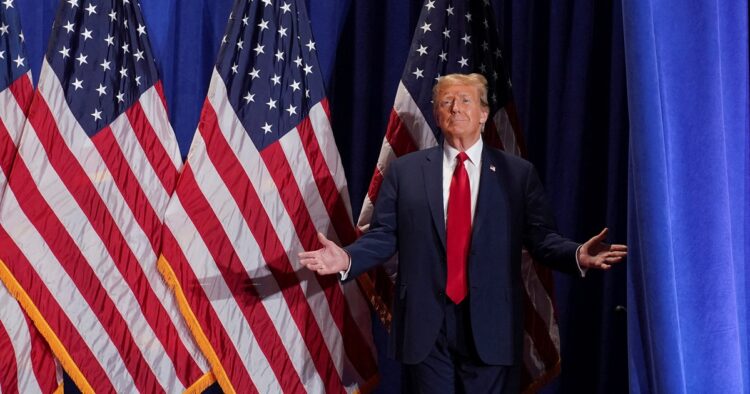In a significant win for former President Donald Trump’s bid for reelection, the U.S. Supreme Court unanimously overturned a decision by Colorado’s top court that had excluded him from the state’s Republican primary ballot. This decision comes amid Trump’s campaign efforts to regain the presidency, overturning a ruling based on a constitutional provision linked to the Jan. 6, 2021, Capitol attack.
The justices’ ruling reverses the Dec. 19 decision by Colorado’s court, which had barred Trump from the state’s primary ballot, citing the 14th Amendment of the U.S. Constitution. This amendment was invoked to disqualify him from holding public office again due to his alleged role in inciting the Capitol attack. Trump is currently the frontrunner for the Republican nomination to challenge Democratic President Joe Biden in the upcoming election.
Trump’s only remaining rival for the Republican nomination is former South Carolina Governor Nikki Haley. The former president faced similar challenges in Maine and Illinois, but those decisions were put on hold pending the Supreme Court’s ruling on the Colorado case.
The legal challenge against Trump’s eligibility was initiated by a group of six voters in Colorado, backed by the liberal watchdog group Citizens for Responsibility and Ethics in Washington. They portrayed Trump as a threat to American democracy, seeking to hold him accountable for the violence that unfolded on Jan. 6, 2021.
The Supreme Court’s swift resolution of the Colorado ballot dispute contrasts with its slower handling of Trump’s bid for immunity from criminal prosecution in a federal case related to his efforts to overturn the 2020 election results. Trump’s trial has been paused pending the court’s decision, providing him with an advantage as he campaigns against Biden.
In the Colorado dispute, the justices expedited the case, taking it up just two days after Trump filed his appeal and issuing a written opinion in just over two months. However, in the immunity case, the court declined to speed up resolution until lower courts had ruled, setting arguments for late April, resulting in a much longer timeline.
The Supreme Court’s conservative majority, which includes three Trump appointees, played a pivotal role in the decision. The court’s involvement in a presidential race hasn’t been this significant since the landmark Bush v. Gore case in 2000.
The 14th Amendment’s Section 3, which was cited in the Colorado case, prohibits individuals who engaged in insurrection or rebellion against the U.S. government from holding office. Trump’s supporters attacked the Capitol following his incendiary speech, leading to accusations that he aided the insurrectionists’ unlawful actions.
Trump’s lawyer argued against disqualification, stating that the provision cannot be enforced absent congressional legislation and that the events of Jan. 6, while criminal and violent, did not constitute an insurrection. Many Republicans denounced the disqualification efforts as election interference, while proponents emphasized the importance of holding Trump constitutionally accountable for his actions.

















Comments